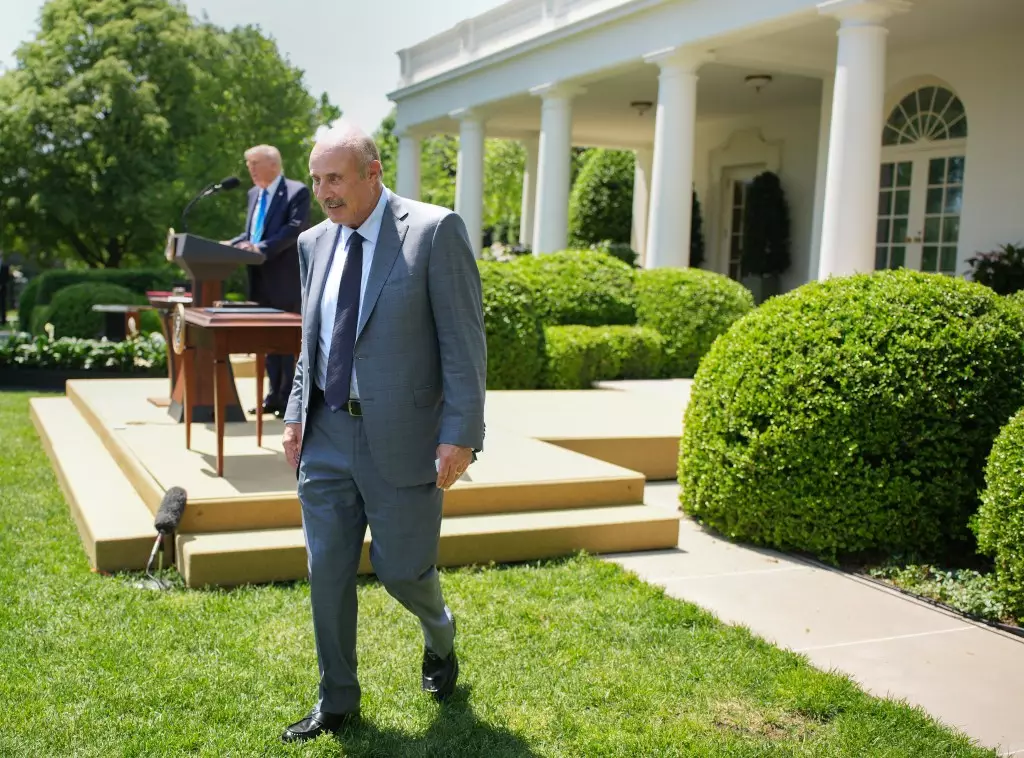In the world of media moguls and television personalities, few stories exemplify the perils of unchecked ambition quite like that of Dr. Phil McGraw. Once celebrated for his no-nonsense advice and a trusted face on daytime TV, his recent legal escapades reveal a stark contrast to his polished public persona. What appears to be a story of wealth and influence swiftly turns into a cautionary tale about the dangers of overreach, deceptive practices, and the limitations of fame. Instead of riding a wave of success, Dr. Phil finds himself entangled in lawsuits that threaten not only his reputation but also his financial stability.
This week’s events highlight a critical gap between perception and reality. McGraw’s attempt to orchestrate lucrative media deals and expand his influence has been marred by allegations of fraud, dishonesty, and betrayal. The plaintiff in this saga, Trinity Broadcasting Network (TBN), accuses McGraw of a calculated scheme to defraud a nonprofit organization out of hundreds of millions of dollars. This legal backlash exposes a stark truth: that behind the veneer of a confident media personality lurks the potential for ethical lapses that can tarnish even the most established careers.
The collision course began with what seemed like a straightforward business transaction—yet it rapidly devolved into a courtroom drama that underscores the volatility of high-stakes media negotiations. The core issue is one of trust—or more accurately, betrayal. McGraw’s purported falsehoods about viewership metrics, revenue projections, and contractual obligations suggest a pattern of manipulation aimed at securing rapid profit at the expense of genuine integrity. For an individual rooted in guiding viewers to personal betterment, such allegations threaten to undermine his entire brand and question the authenticity of his previous success.
The Cost of Deception in a Digital Age
In today’s fast-paced media landscape, the line between truth and fabrication is increasingly blurred. McGraw’s case exemplifies how deceptive tactics can be weaponized to engineer lucrative deals. The accusations against him highlight an alarming trend: the manipulation of data and promises to sway stakeholders and partners. By allegedly creating a false sense of urgency—telling TBN that CBS would pay him millions annually, and demanding rapid commitments—McGraw seemingly prioritized instant gains over transparency and honesty.
The fallout from this misconduct is more than just financial; it strikes at the credibility of the entire industry. When influential figures resort to fabrications, it diminishes trust among partners, viewers, and the public. Moreover, this incident raises questions about the ethics of celebrity-led enterprises, where the allure of fame and fortune can sometimes overshadow moral responsibility. McGraw’s narrative serves as a stark warning: reputation built over years can be shattered in moments if integrity is compromised.
Furthermore, the fallout underscores how executive misjudgments and shortcuts can have long-term repercussions. McGraw’s failed projection for streaming success, the rejection of his ambitions by TBN, and the subsequent legal battles reflect a broader lesson—no amount of popularity can substitute for genuine accountability. The entertainment industry, especially in an era of rapid digital consumption, demands authentic relationships based on truth, not illusions sold through media hype.
The Broader Implications for Media and Trust
This saga is emblematic of a larger crisis confronting the media industry: the erosion of trust. As audiences become more skeptical of content and the motivations of high-profile personalities, scandals like Dr. Phil’s threaten to deepen cynicism. The allure of quick riches, flashy deals, and headline-grabbing antics often mask deeper issues—such as the need for transparency, ethical conduct, and genuine relationship-building.
For Dr. Phil himself, this week serves as an unflattering mirror, forcing a reevaluation of his approach to business and reputation management. It’s an important reminder that fame can be fleeting when built on shaky foundations. While his persona has long been associated with authenticity and helpfulness, these legal allegations cast doubt on that image. The public’s perception of credibility and trustworthiness is fragile, and once broken, difficult to mend.
This entire episode highlights the importance for media personalities and executives alike to operate with integrity and foresight. As the legal proceedings unfold, they will serve as a stark lesson to others in the industry: shortcuts and dishonesty may provide short-term gains but carry heavy long-term consequences. Ultimately, genuine trust and transparency will always outweigh manipulative tactics and false promises.
In the end, Dr. Phil’s current turbulence acts as a beacon—reminding us that no platform, no matter how powerful, can shield one from the repercussions of ethical lapses. The true measure of success isn’t in quick profits or headline fame, but in enduring credibility and moral integrity. Whether he can rehabilitate his reputation remains uncertain, but this week’s events ensure that his story will be reexamined for years to come, serving as a powerful lesson to all who seek to build their brands on a foundation of honesty.
